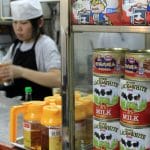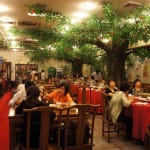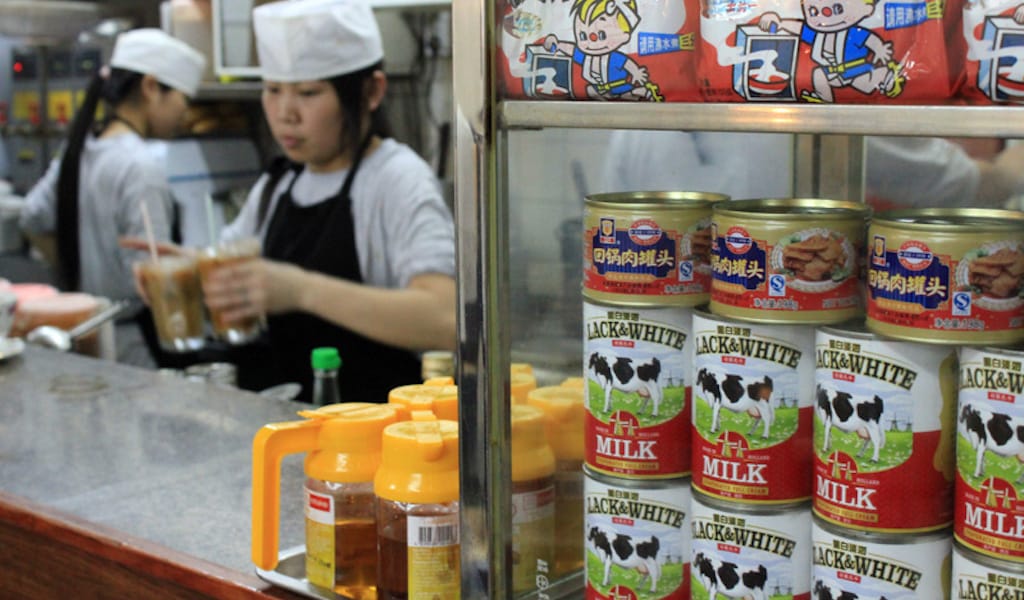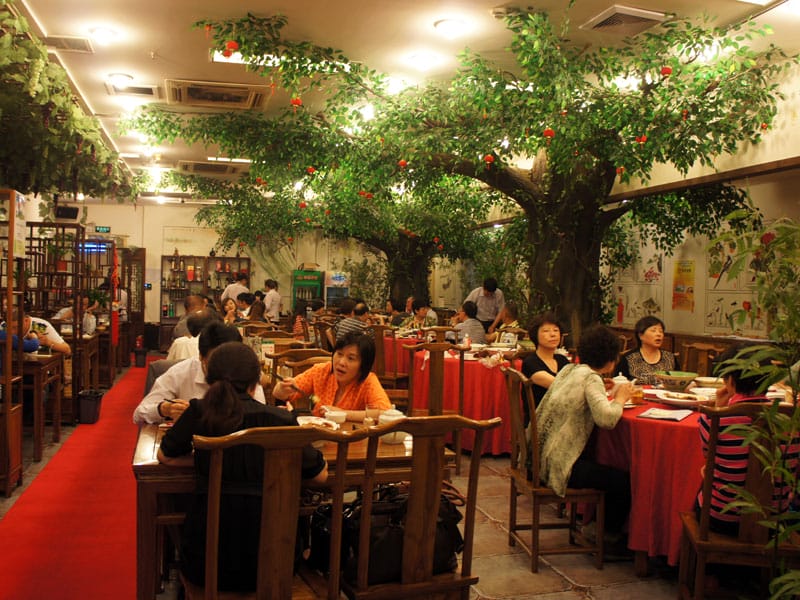North Korean cuisine is about as mysterious as it gets. Few travelers have ever actually been to the reclusive country, and news reports are more often about high-profile rescues and the dire food security situation than its national cuisine.
Thanks to 10 North Korean restaurants in Beijing and 50 others scattered around Southeast Asia, those living in the Far East have plenty of opportunity to glimpse the country’s dining scene. Shanghai is home to seven branches of the Pyongyang restaurant chain, and food is only part of the draw. With a nightly show around 7:30 p.m., the song and dance numbers put on by the double-duty waitresses supposedly allow for a rare glimpse inside the traditional culture.
It is generally reported that these restaurants are all owned by the North Korean government directly and are used as a much-needed source of hard currency as well as for intelligence gathering purposes. They are supposedly controlled by the North Korean military’s General Reconnaissance Bureau (Bureau 39), a secretive organization tasked with maintaining Kim Jong Un’s slush fund, by any means possible (including alleged large-scale counterfeiting of US$100 bills).
 To set the record straight, we talked to the local de facto North Korean expert, Simon Cockerell of Koryo Tours, who has made 128 trips to the country in the last 10 years. His is one of the only companies with the ability to consistently bring tourists in, and he has more firsthand experience in the country than most government officials or NGOs.
To set the record straight, we talked to the local de facto North Korean expert, Simon Cockerell of Koryo Tours, who has made 128 trips to the country in the last 10 years. His is one of the only companies with the ability to consistently bring tourists in, and he has more firsthand experience in the country than most government officials or NGOs.
After eating at the Shanghai branches on several occasions, we found the espionage claims a bit of a stretch. At the Jianguo Hotel location, with the show happening and a full crowd, the harried waitresses barely had time to take orders, much less gather secrets. Cockerell also found the claim dubious, writing in an e-mail, “Spying on customers? To what end…customers choose to go there so any spying activities would be limited to those who actually walk in the door. This sounds like a bit of a Cold War fantasy and something people tell themselves to make their experience in the restaurant a bit sexier.”
Compared to what’s available at some of the city’s best South Korean restaurants, the dining experience here definitely relies a bit on that sexy novelty factor. The variety of banchan (small side dishes) provided before the meal starts is excellent: there are over 100 kinds, including kimchi, boiled spinach and simmered soybeans, and they change with each visit based on what’s on hand at each restaurant. The stone pot bibimbap is a must, the rice dish beautifully presented with the usual garnishes like bean sprouts, kimchi, egg and chili paste, all of which are mixed tableside. The barbecue beef platter and lettuce wraps were tasty, but a bit overpriced for the quality (if you’d rather cook these yourself at the table, ask your server; otherwise they will do it for you in the kitchen).
Perhaps one of North Korea’s best known specialties is naengmyeon, a refreshing dish of noodles served in ice-cold broth. The flour and starch noodles are cut by the waitress with scissors and mixed at the table with julienned veggies, boiled egg and red chili paste. In addition to the complimentary kimchi, you can order Pyongyang kimchi. The plate of pickled cabbage comes with a healthy coating of red chili paste and a stronger flavor.
 To get your order in and the food flowing before the waitresses take on their show duties, the optimal time for a reservation is 6:45 or 7 p.m. The menus were the same at the branches we visited, and the shows nearly identical, so you could just pick the one most convenient to you. The show is quite loud and synthesizer-heavy, so be prepared to pause conversations and devote your full attention, like it or not.
To get your order in and the food flowing before the waitresses take on their show duties, the optimal time for a reservation is 6:45 or 7 p.m. The menus were the same at the branches we visited, and the shows nearly identical, so you could just pick the one most convenient to you. The show is quite loud and synthesizer-heavy, so be prepared to pause conversations and devote your full attention, like it or not.
So does spending an evening here go towards supporting the North Korean regime? Cockerell doesn’t believe the restaurants are directly owned by the government, but clearly at least some of the funds flow back to it. “I believe that exposing the maximum number of North Koreans to the maximum number of foreigners is a good thing to do if you’re trying to increase interaction and understanding, so in that respect I would say people should visit these places. Most importantly, though, when there, make sure to interact with the staff, have a chat with a waitress – don’t just see them as some exotic thing from North Korea who came and put food on your table.”
 January 22, 2013 Hai Di Lao
January 22, 2013 Hai Di Lao
Good service in China is a relative term, and the longer you live here, the lower your […] Posted in Shanghai November 9, 2017 Cha’s
November 9, 2017 Cha’s
Hong Kong native and Cha’s owner Charlie Lau became a restaurateur because of a […] Posted in Shanghai August 27, 2015 Yuyang Laozhen
August 27, 2015 Yuyang Laozhen
Editor’s note: We regret to report that Yuyang Laozhen has closed.
Shanghai’s farm […] Posted in Shanghai
Published on November 21, 2013
Related stories
January 22, 2013
ShanghaiGood service in China is a relative term, and the longer you live here, the lower your expectations sink. The Michelin Guide allegedly won’t deign to cross over the Hong Kong border into China because they refuse to sully their white-tablecloth reputation by doling out stars to restaurants with subpar service. But the inspectors must…
November 9, 2017
ShanghaiHong Kong native and Cha’s owner Charlie Lau became a restaurateur because of a hankering. A movie producer by day, Lau came to Shanghai with Ang Lee to film Lust/Caution, and was disappointed that Shanghai lacked a proper Hong Kongese cha canting, a casual all-day eatery that serves traditional Cantonese food alongside milk teas and…
August 27, 2015
ShanghaiEditor’s note: We regret to report that Yuyang Laozhen has closed. Shanghai’s farm country is closer than most residents imagine, especially when surrounded by the city’s seemingly endless forest of skyscrapers. But just beyond the spires is a huge, green oasis: Chongming. Somewhat smaller than Hawaii’s Kauai, this island at the mouth of the Yangtze…


















































































